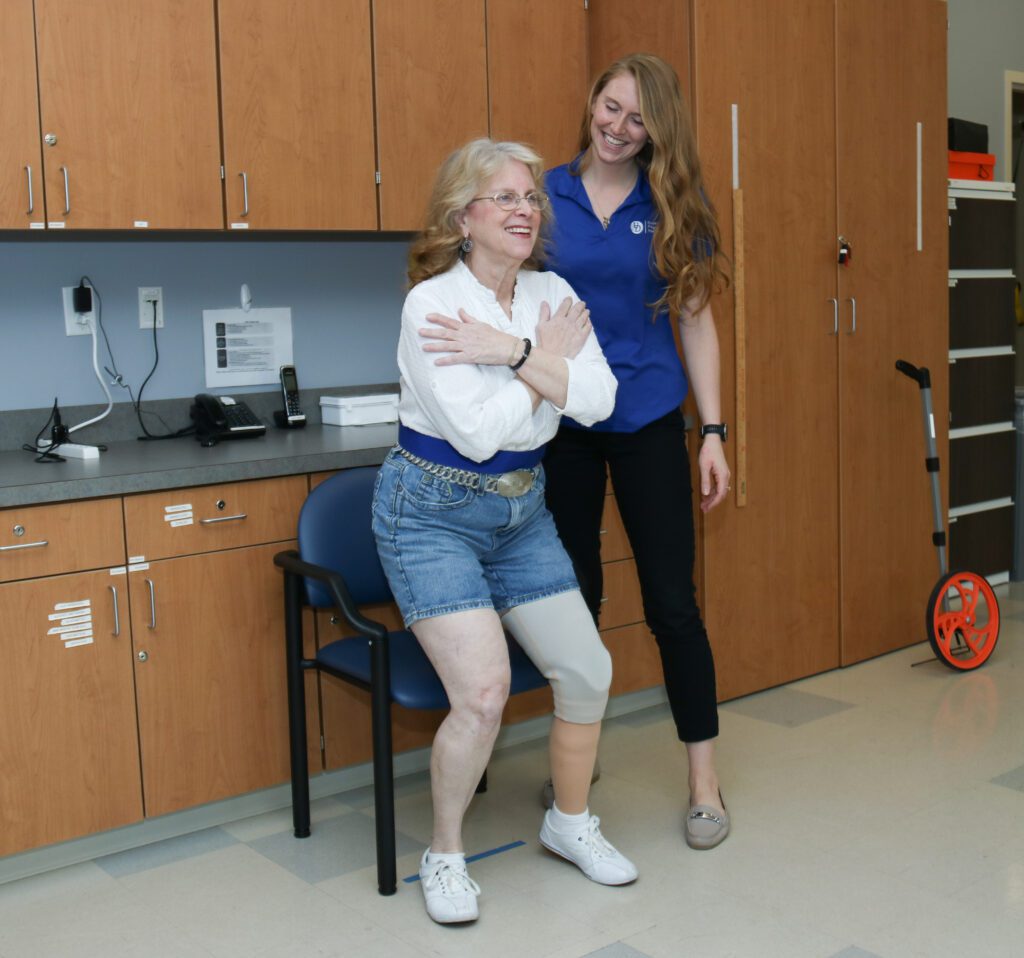University of Delaware Doctoral Student Learns More About Functionality in Amputees Through FPTR Funding
Foundation for Physical Therapy Research (FPTR) scholarship recipient, Emma H. Beisheim, PT, DPT, is looking at body image, evaluation, and pain concerns for adults with lower-limb loss and lower-limb amputation.
Most amputees experience post-amputation pain and experience other concerns with prosthetics and phantom limb pain. This can lead to poor treatment outcomes. Despite its prevalence, little is known about the long-term impact on function in amputees. University of Delaware PhD Student, Emma H. Beisheim, PT, DPT, is studying mobility challenges associated with post-amputation pain to better inform physical therapy evaluation and care for this patient population.
“The majority of adults living with limb loss experience persistent post-amputation pain, but our ability to evaluate and treat post-amputation pain is rather limited,” said Beisheim. “In our work, we hope to identify novel methods of evaluating, monitoring, and addressing post-amputation pain using low-cost, non-invasive clinical tools, to ultimately improve care for people living with limb loss.”
Beisheim was awarded a 2020 Promotion of Doctoral Studies (PODS) II Scholarship in 2020. This Scholarship was funded by the American Physical Therapy Association Scholarship Fund. She was also awarded a PODS I Scholarship in 2019.
Beisheim will use her awards to look at long-term outcomes, such as prosthesis use, physical function, and body awareness, between adults with and without post-amputation pain.
“Research funding is critical to the future of the physical therapy profession,” said Beisheim. “I am particularly grateful to FPTR for helping to advance my work and for supporting our efforts to improve lower-limb loss rehabilitation.”
Beisheim is among many physical therapists whose work has been impacted by the current health pandemic. Specifically, COVID-19 has prevented the involvement of several patients with limb loss who have been excited to participate in novel research or receive care from clinicians with post-amputation care expertise at UD.
Despite the recent shift in the way physical therapy care is administered, Beisheim remains hopeful and excited about the opportunities virtual platforms offer clinicians.
“As we embrace the world of telehealth and learn to overcome the barriers of non-contact evaluation and treatment, I believe physical therapists (and researchers) will have a new role in broadening and tailoring outpatient care to patients in diverse settings, whom we may not have been effectively reaching through traditional treatment models,” said Beisheim.
In 2020, FPTR awarded $212,500 in fellowship and scholarship funding to 12 promising physical therapist researchers to help new investigators begin their research careers and complete doctoral studies.
Select Foundation Grants and Scholarships Awarded
EMMA BEISHEIM, PT, DPT
